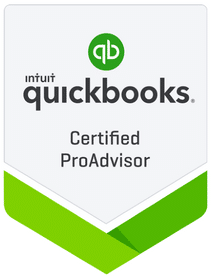- Patrick Roney
- (877) 503-8607
Follow Us :
Follow Us :
Proledge
December 16, 2011

The debate between Mac and Windows is getting almost as polarized as our beloved Congress. Until recently, the bookkeeping world had managed to remain relatively immune to this debate, but with the increased market share of the Mac in the small business space, the question of QuickBooks for Windows vs QuickBooks for Mac has started taking more prominence.
At first glance, it should not be an issue: “If you are a Windows person, get QuickBooks for Windows. If you are a Mac person, get QuickBooks for Mac”. Unfortunately, it is more complicated than this. For the foreseeable future, selecting QuickBooks for Mac will handcuff you in several ways:
I’ll expand a little bit on these items below, but if you own a Mac, your logical next question would be: “I am stuck then?”. Of course not. You have a number of options that will keep you in the QuickBooks world without having to switch to a PC:
Intuit is traditionally a Windows shop. They have had Mac developers for a long time, but the Mac development group is not tasked with feature innovation. Their charter is to “keep up” with QuickBooks for Windows. I am sure that many people with Intuit would violently disagree with this, but it is the unfortunate reality. Some examples:
CPAs and bookkeepers need to maintain their own licenses of QuickBooks to support their clients. The whole accounting profession is pretty much standardized on the Windows platform. It would be too expensive for them to maintain a park of Mac hardware and QuickBooks for Mac licenses (across multiple years) to support Mac files.
Both the Windows and Mac versions of QuickBooks have the capability to convert the company file to the other OS. However, since the feature set is different, the converted file needs to restrict itself to the common denominator. As a result, some data doesn’t transfer from one version to the other. Also, to Intuit’s own admission, the conversion is not dependable. For instance, if you convert more than a couple of times back and forth, reconciliations of the bank accounts tend to disappear. Essentially, this conversion tool should be used only if you decide to migrate from one OS to the other for good, but it should not be used as a protocol to work with your bookkeeper or CPA on an on-going basis.
In the last 5 years, the power of QuickBooks (and its dominance) has increased dramatically thanks to the myriad of 3rd party developers who have developed applications and services that integrate with QuickBooks. Unfortunately, the vast majority of this development effort has been done exclusively for the Windows version of QuickBooks. If you are on the QuickBooks for Mac, you only have access to a small subset of these developers. 5 to 10 years from now, I wouldn’t be surprised if there wasa bit more equality, assuming of course that the desktop version of QuickBooks hasn’t been supplanted by the cloud versions by then. However, as of today, QuickBooks for Mac is more “insulated”.
In summary, QuickBooks for Mac can be a very good option for you if your needs are relatively simple and you don’t need as much integration with the outside world (professionals and applications). The good news is that QuickBooks for Mac is not a dead-end. If QuickBooks for Mac becomes too restrictive for you down the road, there are multiple options for migrating to alternative solutions.


Fill out the form below to sign up to our Blog Newsletter and we’ll drop you a line when new articles come up.
Bookkeepers.
Professional. Affordable.
ProLedge is a bookkeeping services firm.
Copyright © 2024 All rights reserved.
Hello. Can we help you?